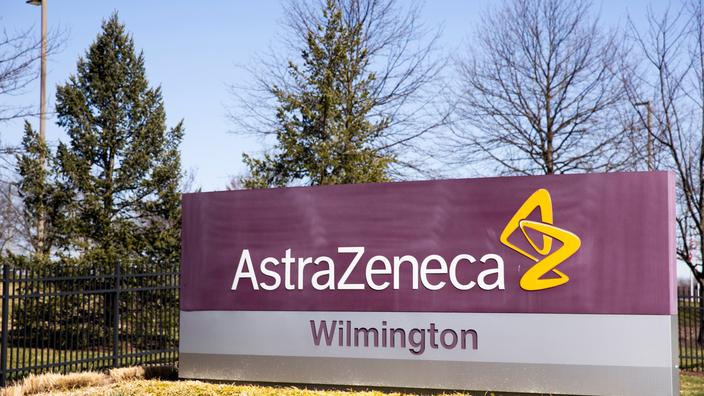The battle between the European Union and AstraZeneca descends into the legal arena on Wednesday May 26 for a hearing before a Belgian court devoted to the alleged violation of the obligations of the laboratory which has not delivered the quantities of anti-Covid vaccines promised to the Twenty -Seven.
The lawyers of the two parties must plead from 9:00 a.m. before a summary judge of the French-speaking court of first instance in Brussels.
Another hearing will take place if necessary on Friday, according to the court.
Read also: Vaccines: to meet its objectives, the EU relies on AstraZeneca
On April 26, the European Commission, which negotiated the orders on behalf of the Member States, announced that it had taken legal action to arbitrate the dispute between the Anglo-Swedish laboratory, which supplies one of the four anti-Covid vaccines today. approved in the EU. "
What matters to us in this case is to ensure that there is a rapid delivery of a sufficient number of doses to which European citizens are entitled
", had then justified a spokesperson for the Commission before the media.
Initially, before a judge seized urgently (the signed contract is under Belgian law), the 27 member countries claim to receive the doses promised for the first quarter of 2021. The expiry date of the contract has been set for mid-June, according to the Commission.
The EU believes that the laboratory will have to pay financial penalties if it does not meet this schedule.
British factories
AstraZeneca delivered in the first quarter only 30 million doses out of the 120 million that it was contractually bound to supply. For the current quarter, the second, it plans to deliver only 70 million of the 180 million initially promised. A Commission official familiar with the matter recently told AFP that AstraZeneca was currently only delivering an average of 10 million doses per month, well below the planned rate. The group denies having failed in its obligations. At the end of April, he denounced a “
baseless
” procedure.
"
If we look at the glass half full, we have delivered more than 400 million doses (worldwide) and saved tens of thousands of lives,
" defended this weekend in the
Financial Times
the boss of AstraZeneca, the Franco-Australian Pascal Soriot.
Behind the dispute over the slowness of deliveries, another looms over procurement priorities.
The Europeans accuse the pharmaceutical giant - associated with the University of Oxford in the development of its serum - of not having used to deliver the EU its two British factories, mentioned in the contract, favoring the United Kingdom with this production.
AstraZeneca works with two other sites, in the Netherlands and Belgium.
Another argument invoked by Brussels, European funds have been committed for the development of the vaccine and the strengthening of the industrial capacities of the laboratory.
Rising mistrust
Me Rafaël Jafferali, one of the Commission lawyers, accused AstraZeneca of having "
violated numerous obligations under the pre-orders contract
".
“
This affects the production and delivery of vaccines,
” he said.
"
There is no obligation to use (production) sites: this may be what the Commission wants, but it is not provided for in the contract
", replied Me Hakim Boularbah, AstraZeneca lawyer, at a procedural hearing on April 28.
The decision of the summary judge should be rendered within a few days.
According to a Commission spokesperson, the debate on whether or not the vaccine pre-order contract was violated will be the subject of a hearing on the merits before the Brussels court, after the urgent settlement of the issue of deliveries.
To read also: Alain Fischer: "Each dose of AstraZeneca refused represents patients, hospitalizations or even deaths which could have been avoided"
This judicial appointment takes place at a time when the AstraZeneca vaccine must face a stubborn distrust in the general public because of the very rare cases of thrombosis that it can cause. In the EU, Denmark, from April, then Norway and Austria gave up using it for their vaccination campaigns. Most other countries have restricted its administration to older adults. This is the case in France where it is reserved for people aged 55 and over.














